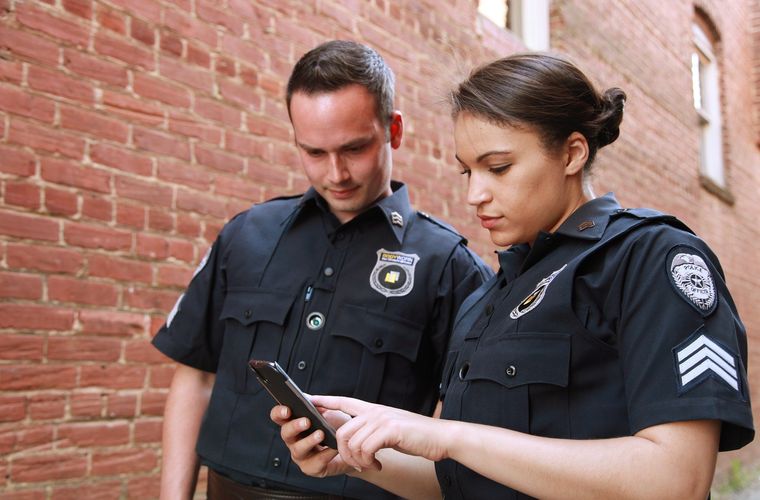While virtual reality has been helping to transform experiences like shopping or education to be more engaging, this technology is also helping law enforcement. Police departments around the United States are beginning to use virtual reality headsets and programs as part of their training. From weapons training to terrorist attacks, this virtual reality police training could reshape the industry. Already certain police departments have seen benefits from using this technology, as police officers are able to respond to a wider range of extreme situations and minimize the use of force needed to de-escalate a problem. With many police shootings making headlines across the nation, this technology could have big implications for law enforcement as a whole.
Police departments like the one in Camden County, South Georgia, are utilizing a virtual reality system called Apex Officer. Apex Officer is a company offering training specifically for police officers using various virtual reality situations. The company is comprised of law enforcement officers and virtual reality experts, working together to make communities safer. Since the company’s inception in 1995, there has been a 194% increase in the effectiveness of the training, as well as a 1000% increase in officers being willing to be trained by the Apex Officer system. At least 14 US States have implemented Apex Officer in their training. “It can possibly lessen the opportunity for a fatal interaction, either for the law enforcement officer or the person they are engaging on the street,” said Jim Proctor, Georgia’s Camden County Sheriff.
The scenarios offered in this training range from crisis intervention to an active shooter to a traffic stop to an emotionally disturbed person. While this platform currently costs around $500,000, police departments are using donations to fund this training, and many believe it will actually help to save overall costs in time. According to the Seattle Police Foundation’s CEO, Cherie Skager: “Once you make that investment, it’s pretty cost-effective. It’s mobile. Officers can take advantage of the training at any particular time. As we know, our officers are working a lot right now because of staffing shortages. So, even if there are 15 minutes that they can put on the goggles and get some training in, that’s a huge win.”

For many of the officers using the training, they have found it easier to empathize with certain individuals with whom they interact. “You’re actually acting it out,” explained Robert Murphy, the Director of Virtual Reality for Axon, another company offering virtual reality police training. Axon has paired with the Seattle police department. According to Murphy: “You’re engaging with this character and you’re getting to a mutually beneficial outcome for that community member as part of the training scenarios.” Training in virtual reality also allows for mistakes to be learned without costly consequences. According to Corporal B. Fishel of the Kingsland Police Department: “It forces you to think quickly, and it’s very realistic. We have fractions of a second to respond out there, and we would much rather make that mistake here versus in the field.” Having a virtual environment to practice can help officers avoid dangerous mistakes in real-life training, such as accidental misfires or injuries.
This virtual reality police training can also bring law enforcement closer to their local communities with community education. Community members can also participate in this virtual reality training to better understand the risks faced by law enforcement, as well as ways to keep their city safer. As Murphy explained: “Our vision is to give public safety officials more information and more context to their communities and what they’re going through and that individual (can) help officers have greater tools available to them when they’re responding to calls for services.”
For more market insights, check out our latest Digital Twin news here.













